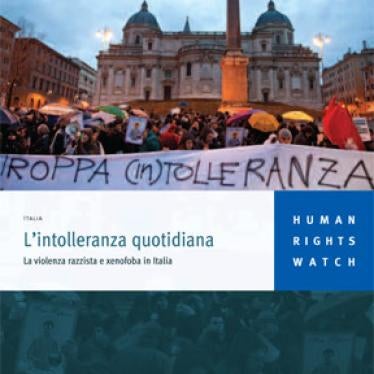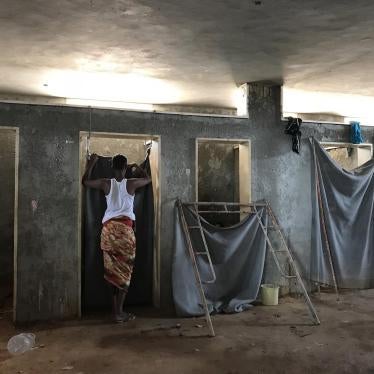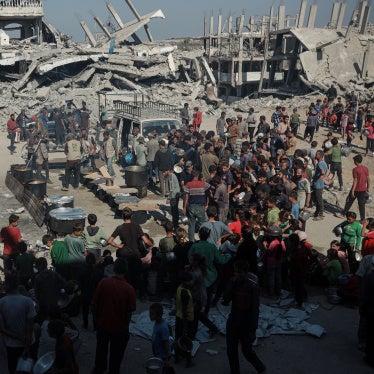(Roma, 11 Maggio 2012) - Associazione 21 luglio, ASGI, Amnesty International, Human Rights Watch e Open Society Justice Initiative chiedono che il governo abbandoni ogni iniziativa tesa a perpetuare gli effetti della passata Emergenza Nomadi, uno stato d’emergenza che attribuiva poteri straordinari ai prefetti in riferimento ai Rom e ai loro insediamenti in cinque regioni italiane e che era stato giudicato illegittimo dal Consiglio di Stato nel Novembre 2011.
Contro tale decisione, il 12 febbraio scorso, il governo italiano ha presentato in Cassazione un ricorso straordinario atto a vanificare gli effetti della sentenza. Il 9 Maggio 2012 il Consiglio di Stato ha deciso di sospendere gli effetti della propria sentenza in attesa del giudizio di Cassazione.
Le cinque organizzazioni dichiarano: “Il governo deve rinunciare all’appello contro la sentenza del Consiglio di Stato del Novembre 2011. Questa sentenza aveva marcato un passo in avanti in vista della cessazione delle violazioni che le comunità Rom hanno sofferto laddove è stata attuata l’emergenza nomadi. Confidiamo nel fatto che la recente ordinanza del Consiglio di Stato non permetta nuovi abusi.”
L’emergenza nomadi aveva definito la presenza dei campi Rom in Italia come una minaccia alla sicurezza pubblica e stabilito poteri straordinari per censire i Rom e chiuderne i campi, sia regolari che irregolari, in deroga alle norme fondamentali di tutela dei diritti umani.
L’Emergenza Nomadi ha suscitato dure critiche da parte delle maggiori organizzazioni internazionali competenti in materia di diritti fondamentali, tra cui il Consiglio dei Diritti Umani dell’ONU, il Comitato ONU per l’Eliminazione della Discriminazione Razziale, il Commissario per i Diritti Umani del Consiglio d’Europa, il Comitato Europeo per i Diritti Economici e Sociali e la Commissione Europa contro il Razzismo e l’Intolleranza.
(Rome) – The Italian government should abandon any initiative aimed at perpetuating the effects of the past “NomadEmergency,” Associazione 21 luglio, the Association for Juridical Studies on Immigration (ASGI), Amnesty International, Human Rights Watch, and Open Society Justice Initiative said today. The Nomad Emergency, a state of emergency declared in five Italian regions giving local authorities special powers with respect to Roma and Roma settlements, was declared unlawful by the Council of State, the highest administrative court, in November 2011.
The government filed an appeal against this ruling in February 2012 to the Court of Cassation. On May 9, the Council of State suspended the implementation of its November 2011 ruling pending the decision from the Court of Cassation.
“The government should stop its attempts to overturn the Council of State’s November 2011 ruling, which was a step forward toward putting an end to human rights violations suffered by Roma communities where the Nomad Emergency was applied,” the five organizations said. “In the meantime, we hope that the Council of State’s recent order will not give way to further abuse.”
Defining the presence of Roma in Italy as a threat to public security, the Nomad Emergency created powers to conduct censuses in Roma settlements, as well as to close down authorized and informal Roma camps in derogation of laws that protect human rights.
The Nomad Emergency was severely criticized by some of the most important organizations for the protection of human rights, such as the UN Human Rights Council, the UN Committee for the Elimination of Racial Discrimination, the Council of Europe Commissioner for Human Rights, the European Committee for Economic and Social Rights, and the European Commission against Racism and Intolerance. Even the Italian government has said that it did not view its renewal as necessary.







